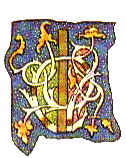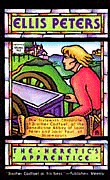




n the summer of 1143, William of Lythwood returns to Shrewsbury in a coffin, his pilgrimage at last at an end. William's young attendant, Elave, accompanies the body and sets out trying to secure a burial place on the grounds of the abbey of St. Peter and St. Paul, despite William's once having been reproved for "heretical views." Elave, too, has evidently,
learned skepticism. After he drunkenly expresses heretical opinions, the mighty prelate Gerbert brings capital charges
against him. The beautiful Fortunata, whom Elave adores, becomes a reluctant witness for the prosecution. When violent
death follows, Brother Cadfael is once again called from his herbiary to the aid of his old friend Hugh Beringar, the
sheriff. Cadfael's new task is twofold: there are charges of heresy to be rebutted, as well as a murder to be solved.
Synopsis Courtesy of the Mysterious Press

All photographs, book and video covers, are copyrighted by the owner and the Mysterious Press



contents copyrighted © 1996-2019.
All Rights Reserved.